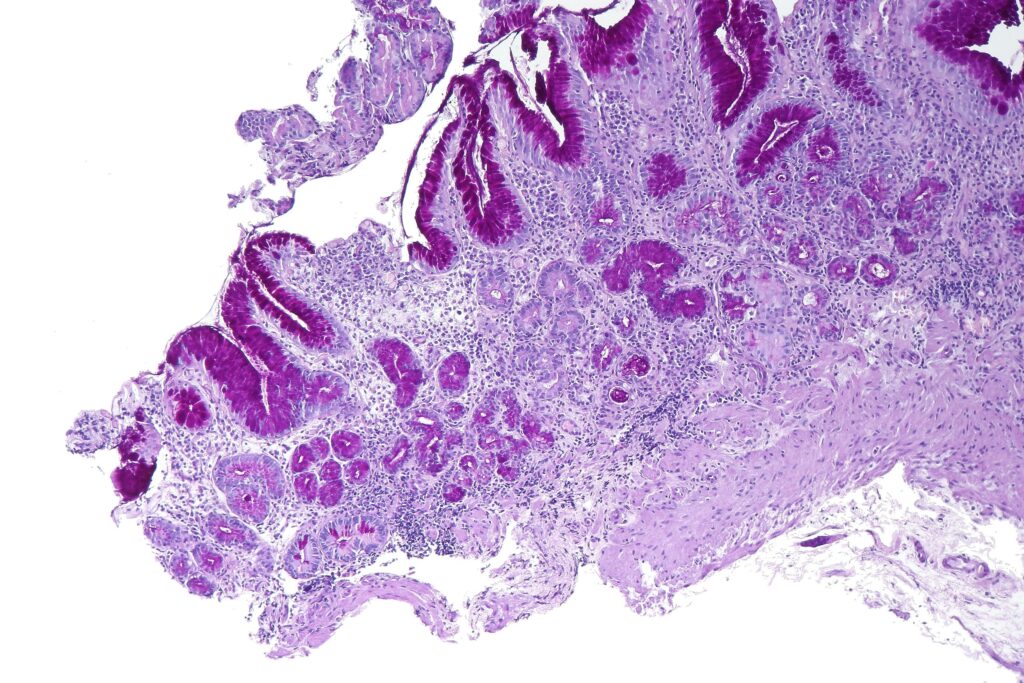Table of Contents
Pernicious Anemia (PA): Symptoms, Causes & Effective Management
Pernicious anemia is a chronic autoimmune condition characterized by the body’s inability to absorb vitamin B12, leading to a deficiency that can cause anemia and neurological problems. It significantly affects overall health, energy levels, and quality of life.

Quick Facts
- Prevalence: Affects approximately 0.1-0.2% of the general population.
- Common Symptoms: Fatigue, pale skin, neurological symptoms.
- Affected Population: Most commonly diagnosed in adults over 60, but can affect younger individuals.
Understanding Pernicious Anemia
In pernicious anemia, the immune system mistakenly attacks the stomach cells responsible for producing intrinsic factor, a protein essential for vitamin B12 absorption. Without sufficient vitamin B12, red blood cell production is impaired, causing anemia and potentially serious neurological consequences.
Common Symptoms
Recognizing symptoms early supports effective management:
- Fatigue and weakness
- Pale skin or jaundice
- Shortness of breath, especially during physical activity
- Dizziness or faintness
- Rapid heartbeat (palpitations)
- Neurological symptoms like numbness, tingling in hands and feet
- Difficulty walking or coordination issues
- Memory loss or cognitive impairment
Causes and Risk Factors
While the exact cause of pernicious anemia remains unclear, several risk factors have been identified:
- Autoimmune Disorders: Increased risk with conditions like type 1 diabetes or thyroid disease.
- Genetics: Family history increases the likelihood of developing PA.
- Age: More common among older adults.
- Gastrointestinal Issues: History of stomach surgeries or digestive disorders.
Diagnosis
Diagnosing pernicious anemia typically involves:
- Medical History: Evaluating symptoms, dietary habits, and family medical history.
- Blood Tests: Checking for vitamin B12 deficiency, intrinsic factor antibodies, and signs of anemia.
- Bone Marrow Examination: Rarely needed, but can confirm diagnosis in complicated cases.
Effective Treatments and Management
The main treatment for this autoimmune disease involves restoring vitamin B12 levels:
- Vitamin B12 Injections: Regular injections to bypass the digestive tract and ensure proper absorption.
- Oral or Nasal Vitamin B12: Alternative supplementation methods may be appropriate in certain cases.
- Dietary Adjustments: Consuming vitamin B12-rich foods such as meat, fish, eggs, and dairy, although diet alone cannot resolve the absorption issue.
- Regular Monitoring: Ongoing blood tests and medical follow-ups to maintain optimal vitamin B12 levels.
Potential Complications if Left Untreated
Untreated pernicious anemia can lead to significant health issues:
- Severe neurological damage, including permanent nerve damage
- Increased risk of heart disease due to anemia
- Cognitive decline and memory impairment
- Complications during pregnancy, affecting mother and child
When to See a Doctor
Consult a healthcare provider if experiencing persistent fatigue, unexplained neurological symptoms, or other signs of anemia. Early diagnosis and appropriate treatment significantly improve outcomes.
Practical Tips for Living with Pernicious Anemia
Effective daily management includes:
- Adhering strictly to vitamin B12 supplementation schedules.
- Regularly attending medical appointments for monitoring.
- Maintaining a balanced diet rich in nutrients to support overall health.
- Engaging in gentle physical activities to manage fatigue.
- Joining support groups for emotional and practical guidance.
Recent Research and Advances
Ongoing research continues to improve understanding and management:
- Studies investigating genetic markers and autoimmune mechanisms involved in PA.
- Advancements in diagnostic tools for early detection.
- Exploring alternative treatments and improved supplementation methods.
Frequently Asked Questions
Is pernicious anemia curable? Currently, there’s no cure, but lifelong vitamin B12 supplementation effectively manages symptoms and prevents complications.
Can dietary changes alone resolve pernicious anemia? Dietary adjustments can help overall health but cannot overcome the absorption issue inherent in pernicious anemia; supplementation is essential.
Is pernicious anemia hereditary? Genetic factors play a role, and having family members with PA or other autoimmune conditions increases the risk.
Additional Content
For comprehensive information on the various treatments you can explore our Autoimmune Disease Treatment page. If you are seeking expert medical advice, our Top Autoimmune Doctors section provides a list of highly recommended specialists. Additionally, for an overview of other autoimmune conditions, visit our Autoimmune Diseases page.